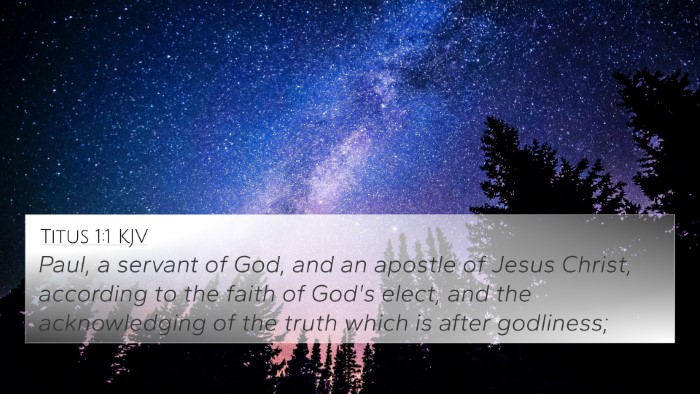Understanding Hebrews 11:1
Hebrews 11:1 states: “Now faith is the substance of things hoped for, the evidence of things not seen.” This verse serves as a profound definition and description of faith, essential to the Christian doctrine.
Meaning and Interpretation
The verse emphasizes that faith is more than mere belief; it is a deep-seated assurance in the promises of God that have yet to be fulfilled. It lays the groundwork for understanding the rest of Hebrews 11, often referred to as the “Hall of Faith.” Below, we synthesize insights from notable public domain commentaries.
Insights from Matthew Henry
Matthew Henry notes that faith is the substance, or foundation, of things hoped for. It is the assurance that the things God has promised are indeed real, even if they are not immediately visible to us. He stresses the importance of faith as a driving force in the life of a believer.
Insights from Albert Barnes
Albert Barnes elaborates that faith demonstrates a strong trust in God, underpinning the reality of hoped-for things and serving as evidence of the spiritual truth that transcends our physical sight. Barnes posits that faith provides confidence in God's unwavering commitment to fulfill His promises.
Insights from Adam Clarke
Adam Clarke emphasizes that faith operates in both a present and future context. He explains that while the fulfillment of promises might be delayed, faith is the key that unlocks the anticipation of their eventual realization. Clarke highlights that faith is essential in the believer's journey, shaping their understanding and interaction with God.
Cross-References to Hebrews 11:1
To deepen our understanding of Hebrews 11:1, we can explore several cross-references that provide additional insights into the nature and power of faith. Here are some critical connections:
- Romans 4:20-21: This passage discusses Abraham's faith, demonstrating unwavering confidence in God's promises.
- 2 Corinthians 5:7: "For we walk by faith, not by sight" highlights the essence of living with faith beyond the physical reality.
- Hebrews 11:6: It emphasizes the necessity of faith to please God, reinforcing that belief is fundamental to our relationship with Him.
- Mark 11:24: This verse illustrates that faith in prayer leads to the fulfillment of what we ask for, as it aligns with God's will.
- Galatians 3:11: This verse reiterates that the just shall live by faith, linking faith with righteous living.
- James 2:19: This passage emphasizes that mere belief is insufficient; faith must be accompanied by action.
- 1 Peter 1:8-9: Expressing joy in salvation through faith, it connects the emotional aspect of belief with the spiritual outcomes.
- Hebrews 10:23: Encouragement to hold steadfast in faith while awaiting God's promise, exemplifying hope intertwined with faith.
- Isaiah 40:31: This verse correlates faith with renewal of strength, showing that those who wait on God through faith will find restoration.
- Philippians 3:14: The pursuit of the heavenly call emphasizes a faith-driven life directed toward the future promises of God.
Importance of Cross-Referencing
Cross-referencing Biblical texts, such as those mentioned above, enriches our understanding of faith and how it interrelates with other scriptural themes. It fosters a comprehensive approach to Scripture study, allowing believers to forge deeper connections between verses.
Tools for Bible Cross-Referencing
- Bible Concordance: A valuable resource to locate scriptures related to specific words or themes.
- Bible Cross-Reference Guide: Helps in exploring links between verses across different books of the Bible.
- Cross-Reference Bible Study: A method to engage with the Bible, analyzing how verses interact thematically.
- Comprehensive Bible Cross-Reference Materials: Used for deeper studies, providing extensive linking of scriptures.
Applying the Meaning of Hebrews 11:1
Hebrews 11:1 serves as a foundation for understanding faith not simply as intellectual assent but as a dynamic and transformative experience. Believers are encouraged to embrace this faith in their daily lives—trusting in God's promises and acting in accordance with that faith. Understanding the connections between this and other Bible verses enhances immersion into the rich tapestry of biblical theology.
Conclusion
In summary, Hebrews 11:1 encapsulates the essence of faith, vital for navigating the Christian life. By employing tools for cross-referencing and exploring the thematic connections within biblical texts, believers can deepen their faith and understanding of God's promises. The inter-Biblical dialogue highlighted through cross-references offers invaluable insights, providing a broader context for both the verse and the Christian experience.

























